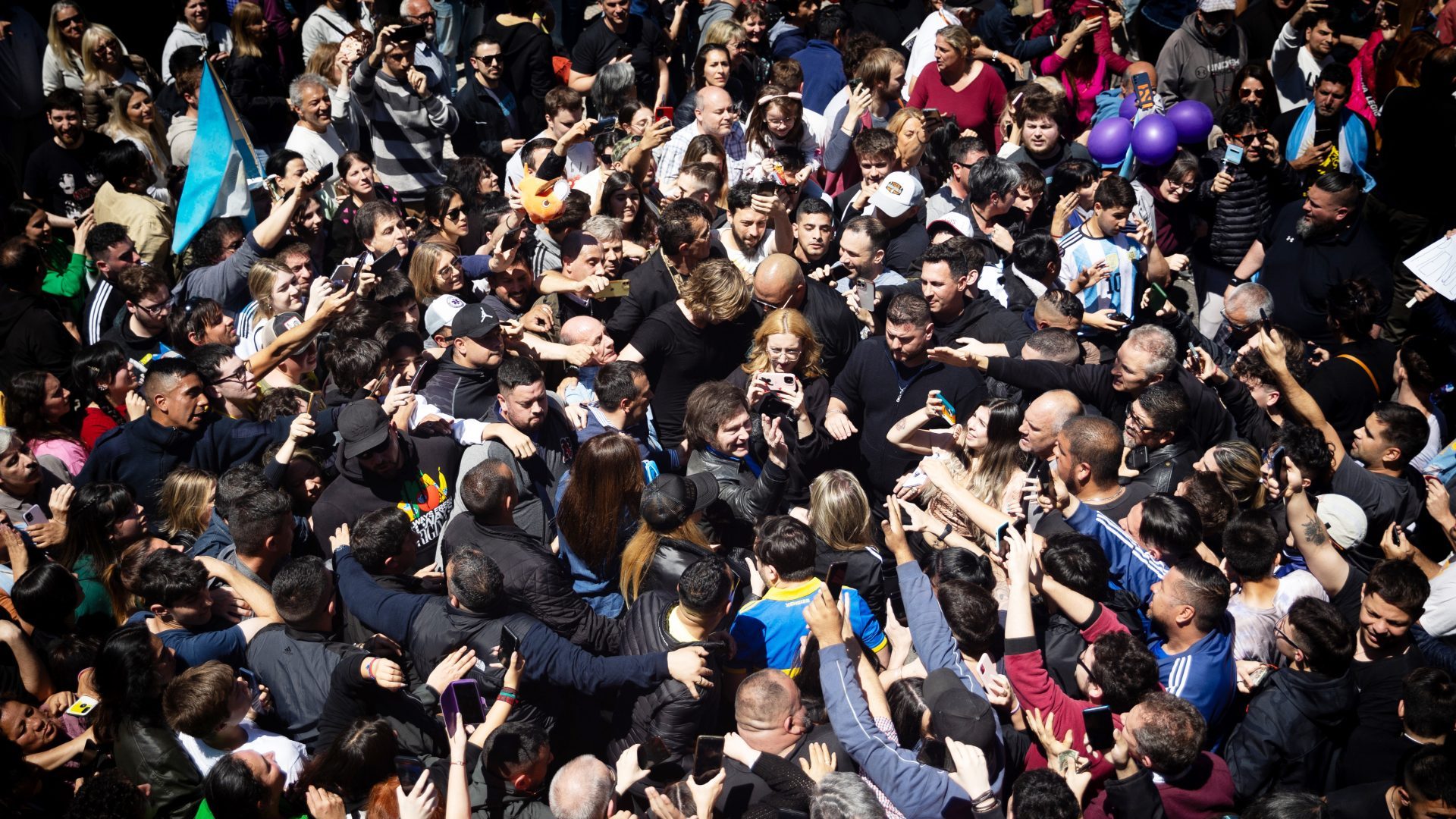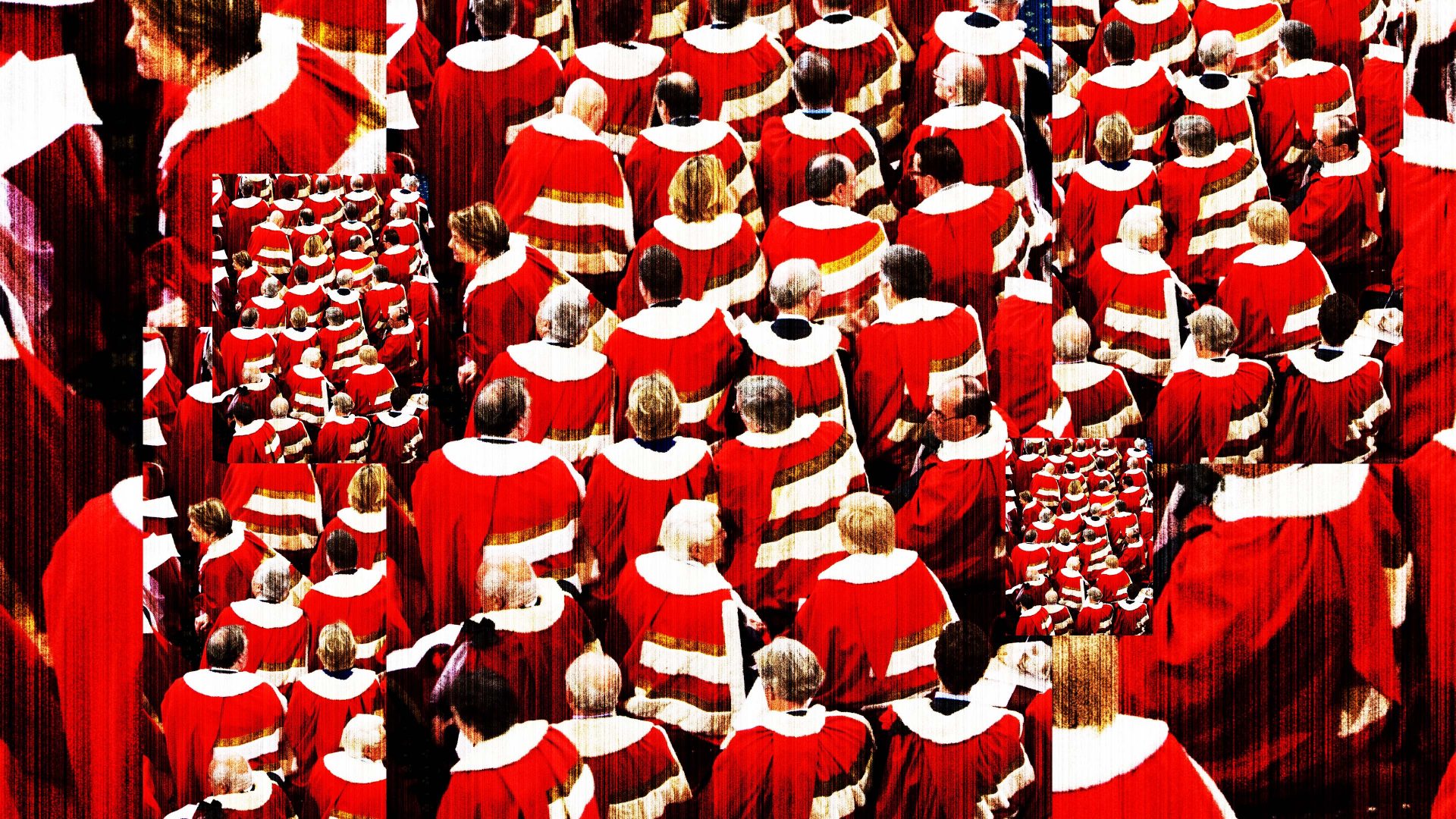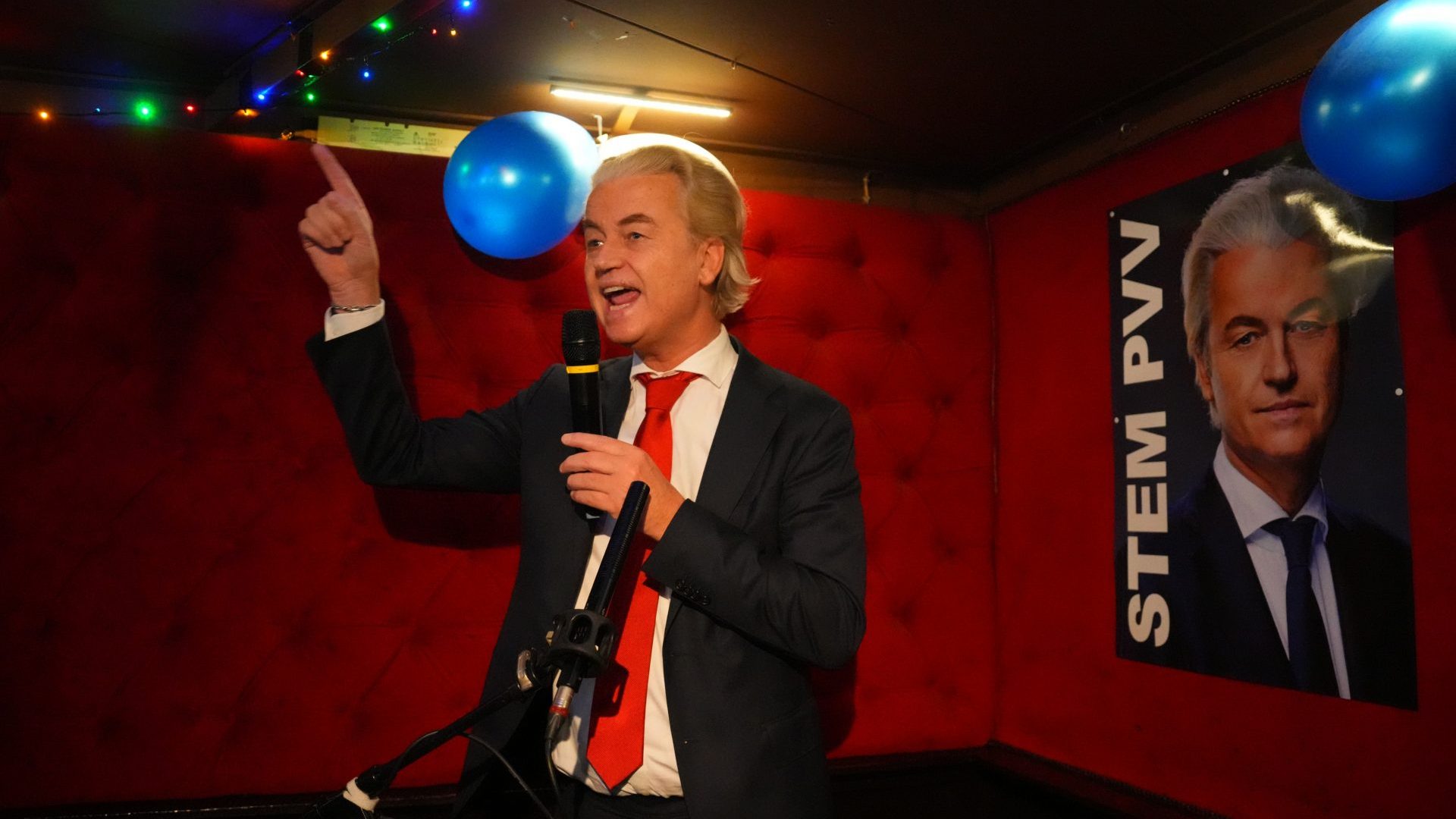In a single week, two far right populists with crazy hairstyles triumphed in elections they weren’t supposed to win. Javier Milei secured the presidency of Argentina, defeating the Perónist establishment candidate Sergio Massa to begin an experiment in ripping up the state. In the Netherlands, meanwhile, Geert Wilders – a man with a criminal record for inciting racism – scored 23.6%, allowing his PVV party to make the first attempt to form a coalition.
Beyond the hairstyles, the extreme rhetoric and flamboyant political gestures, however, the most worrying feature of the two populist victories is how different the countries were in which they happened.
Milei won because the Argentine economy is a shambles. Inflation is running at 140%, and headed for 200% next year. Four out of 10 Argentinians live in poverty. The country’s debt is 90% of its GDP; more pressingly, its annual budget deficit is close to 10%. It has maxed out a $44bn credit line from the IMF, while its currency has lost a third of its value against the dollar in a year.
The Dutch economy, by contrast, is a relative success story. It took the shallowest hit from Covid of all major eurozone economies, and achieved the strongest recovery. True, it underwent a cyclical recession in the first half of 2023, as the post-Covid growth spurt faltered and eurozone monetary policy tightened. But its labour market is running hot and wages are rising. The Netherlands’ debt is less than half of its GDP; its deficit is below 2%.
Milei won, in short, because the political establishment of Argentina, wedded to a form of corporatism pioneered by the Perón dynasty, gave up on making their chosen economic model work. Towards the end, they were simply throwing money at their political base – the trade unions and the urban middle class – with a law that more or less abolished income tax.
By contrast, Wilders scooped nearly a quarter of Dutch votes over who should benefit from economic success. His central promise was to stop and reverse immigration. While business surveys cite the shortage of labour as the biggest obstacle to growth, both Wilders’ party and two more mainstream conservative rivals zeroed in on an anti-migrant/anti-woke campaign, in the hope of stemming the rise of a revived Green/Labour alliance.
As happens in almost every country where conservatism goes anti-woke, the true beneficiary was the far right: voters in lower income groups, including – ominously – young voters, preferred the “organ grinder, not the monkey”.
The NSC Party, created from scratch in August specifically as a new, anti-liberal, communitarian conservatism, topped the polls when it first appeared – and then bombed as Wilders stole a third of its support during the campaign. In Argentina, it was the endorsement of Milei by the centre right, free-market candidate Patricia Bullrich, who had been polling in the mid-to-high 20s, that put rocket boosters under the chainsaw-toting populist.
The results, both in Argentina and the Netherlands, will be prolonged political instability. Milei’s economic programme – linking the real to the dollar and abolishing the central bank – will, if it gets support in parliament, crash the economy. Wilders will struggle to form a coalition, despite the equivocal noises being made by other centre right parties, and if he forms a working majority around the project of an EU exit referendum, the same bad actors and influence merchants who brought us Brexit will pile into the Netherlands.
What unites these two snapshots, ultimately, is the fragility of mainstream politics. For certain, the word “mainstream” connotes very different entities in Buenos Aires and The Hague: the former has been governed by Perónism – a corrupt, technocratic form of statism – since the fall of the military junta; the latter is shaped by active participation in the deepest structures of Europe: the euro, Schengen and the European Court of Human Rights.
What we’re seeing, case by case, is how little voters actually care for the governance systems put together and nurtured during the post-cold war period, and how easily attracted they are to anti-systemic promises.
As I argued in How to Stop Fascism, what we’re living through is a crisis of the neoliberal self: the evaporation of a deeply rooted common sense, imbued into two generations by experience, that democracy and markets are the best guarantee of wellbeing. And though this is a spontaneous process, driven by the collapse of economic security both for the poor and the young, it is being helped along by influence operations, disinformation and money from both China and Russia.
These two electoral earthquakes are just the latest examples of the seismic instability of western democracies. There are no miracle cures, but ending the temptation for free-market conservatives to move on to the anti-woke/overtly racist agenda of the far right is surely one antidote. A firm political alliance between the centre and the left is another.
In the Netherlands, with its fragmented party system, Labour and the Green Left made a brave unification pact, reviving themselves to score 15.5%, alongside numerous other left parties on low single figures. What the entire spectrum of the Dutch centre left should now realise is that speaking with one voice, with a single ethos, message, brand and figurehead is the only way you beat right wing populism, once it gets the tacit endorsement of the constitutional right. It’s a lesson as old as the 1930s, but it seems the hardest to learn.




